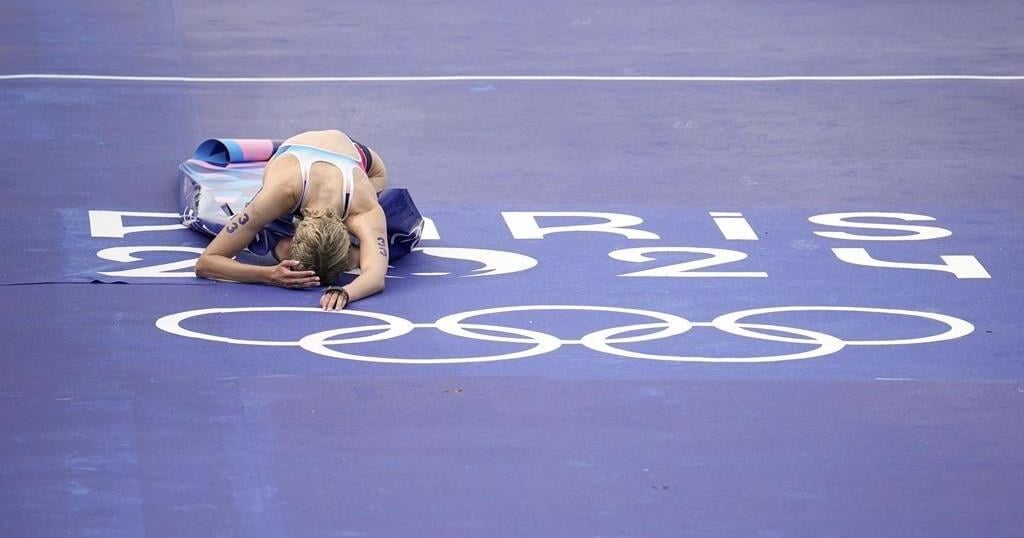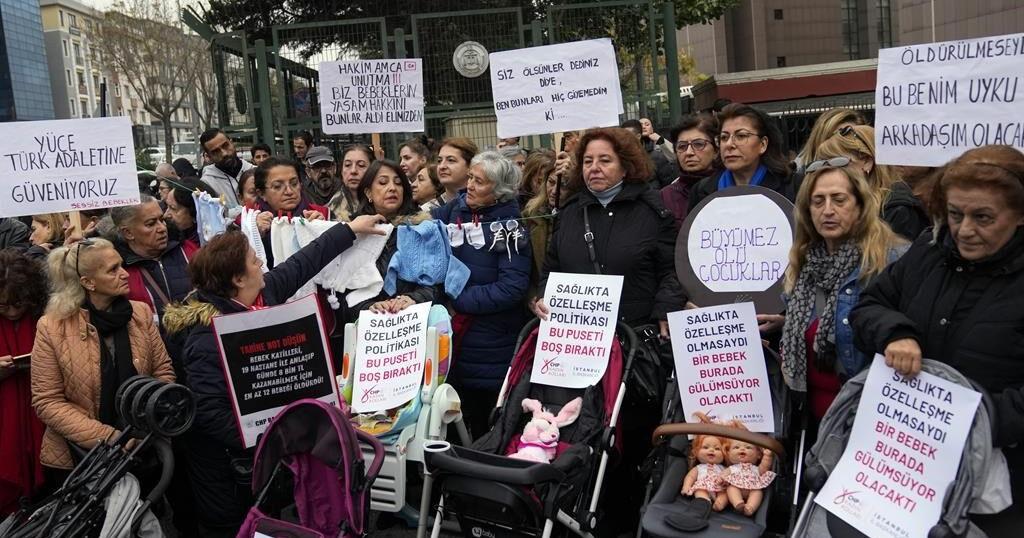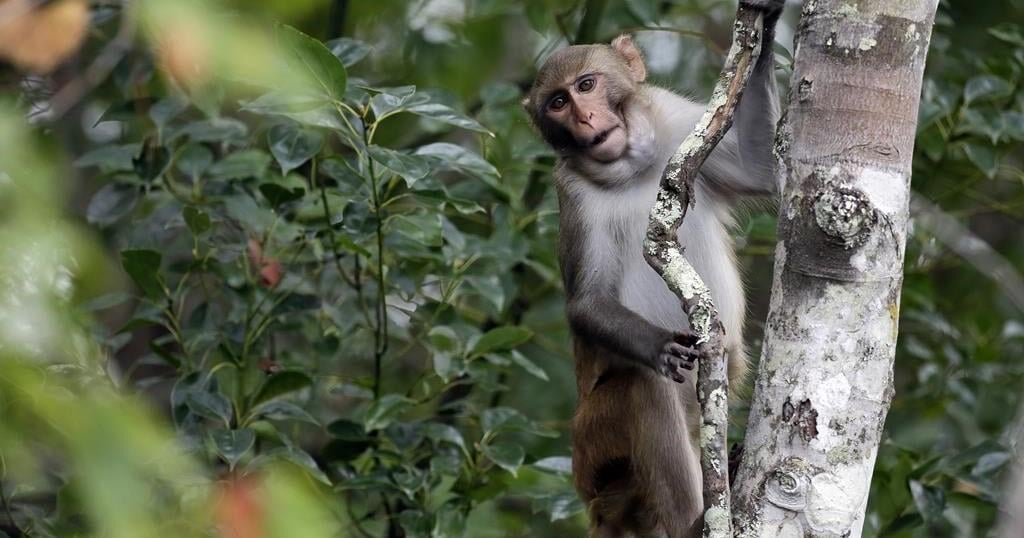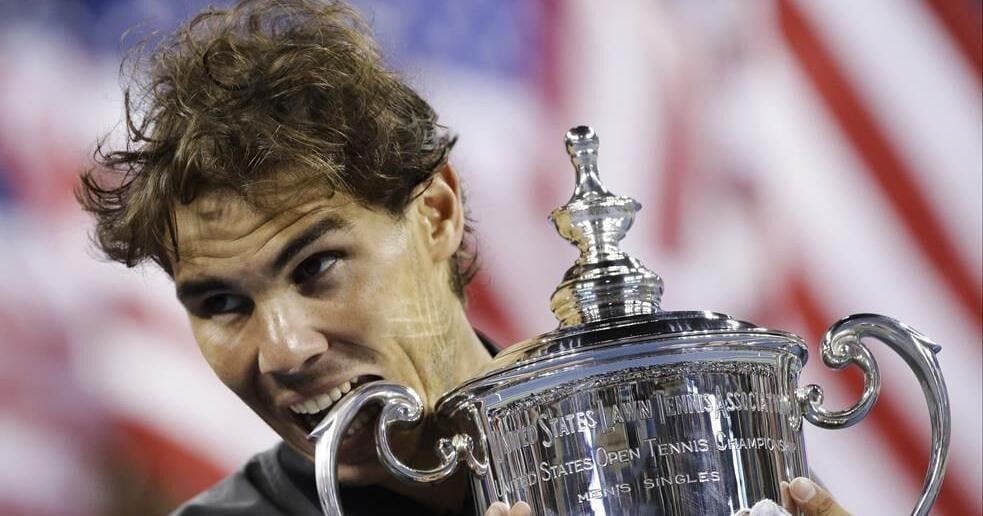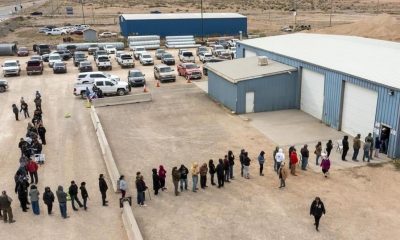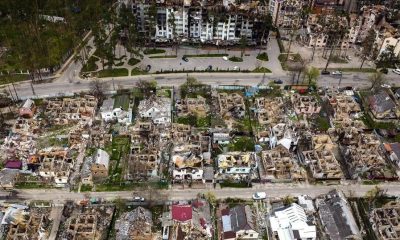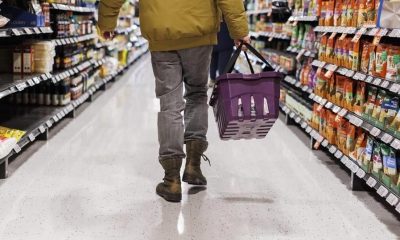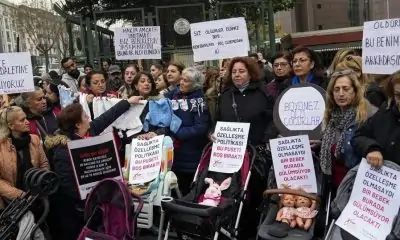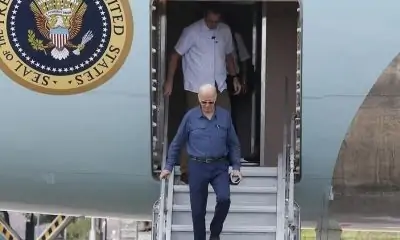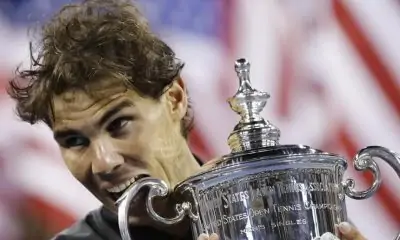PARIS (AP) — One triathlon race had the rain-slickened streets. The other had the heat.
Both had the scenery and, of course, the Seine.
After a couple of canceled swim practices and a delay because of the river’s water quality, the women’s and men’s Olympic triathlon races finished Wednesday in spectacular fashion — on the Pont Alexandre III bridge spanning the famed waterway with the Eiffel Tower in the background.
“It’s magical,” said newly minted gold medalist Cassandre Beaugrand of France. “It’s the best route we’ve had in a long time and I know all the other athletes feel the same.”
Beaugrand captured the women’s Olympic triathlon by making her way through a Seine River that was under scrutiny for its water quality and navigating slippery roads that turned the cycling portion into a series of spills following an early morning rain.
On the men’s side, which started less than an hour after the women finished, there was plenty of stifling heat and humidity to deal with as the sun came out in full force. Alex Yee of Britain used a burst at the end to catch and pass Hayden Wilde of New Zealand to win the gold medal by six seconds.
“Everyone suffered in the heat,” Wilde said. “Everyone was in the same position. It was just really nice that we could race a day after the delay and just go with the flow.”
Holding the race in France’s second-longest river was all part of an ambitious plan to clean up the long-polluted Seine. Organizers have been steadfast in their insistence that the swimming portion of the triathlon and the marathon swimming events next week could safely be held in the river.
At times, the athletes had to feel almost like tourists, given the views. They cycled and sprinted past the Grand Palais, along the Champs Élysées and were close to the Arc de Triomphe. An extra loop for cycling took them past the parliament building, the Assemblée Nationale and the Musée d’Orsay.
“We were lucky enough to have probably the most beautiful venue of any race in the Olympics,” Yee said. “I guess that came with the small penalty at the risk of the Seine being dirty.”
The men’s race was originally supposed to take place on Tuesday but got postponed because of elevated levels of bacteria in the water. The organizers said early Wednesday the latest tests of the water showed compliance with quality standards.
“For me, you’ve got to have trust in the organization that they’re going to put you in safe conditions,” said Yee, who won silver at the Tokyo Games. “I’m sure we’ll find out in due time if that’s correct.”
Beaugrand finished the run on top of the bridge and collapsed to the ground in exhaustion and exhilaration. It was on top of the Paris 2024 logo, with a home crowd cheering her on. Her time of 1 hour, 54 minutes, 55 seconds edged Julie Derron of Switzerland by six seconds. Beth Potter of Britain captured bronze.
“To do this in front of our crowd was something that had to be done, and I still can’t believe it,” Beaugrand said.
It was quite a finish in the men’s race, too, with Yee summoning every ounce of remaining energy in the extreme heat to surge past Wilde. Leo Bergere earned another medal for France by taking bronze.
“It was just a clean, fair race with the both of us, and I think that’s what we’re most proud of and most stoked of,” Wilde said of his race with Yee. “It was everything we dreamed of — an epic battle.”
A steady rain subsided just before the women dove into the water. Derron said water quality wasn’t on her mind — only a medal.
“I knew it was race day, and I knew what I had to do,” Derron said. “So you don’t have time to focus on anything around that.
“It felt normal. It felt a bit cold, especially because it was raining before the race. So I felt a bit chilly before the start, but the water is just normal water. Of course, the strong current on the way back, that made it harder, but other than that, it’s just normal water.”
The tricky part proved to be on the bike and racing through the wet streets. Romina Biagioli of Argentina fell off her bike on Lap 2, her water bottles rolling away.
“It was a nice course, but with the rain it was dangerous,” she said. “It was nice but dangerous.”
As for swimming in the Seine, Biagioli said she would’ve preferred more practice time to prepare for its currents.
“I wasn’t worried about the pollution,” Biagioli said. “I was worried about how it could affect me not to try it before the race.”
Yee is hopeful this race sparks a Parisian triathlon trend.
“Fair play to France and the government that we’re able to hopefully create a legacy and for that to live on post our race,” Yee said. “Hopefully some people watching today can then go and try the sport for the first time in a place where they probably could never before.”
___
AP Olympics:

